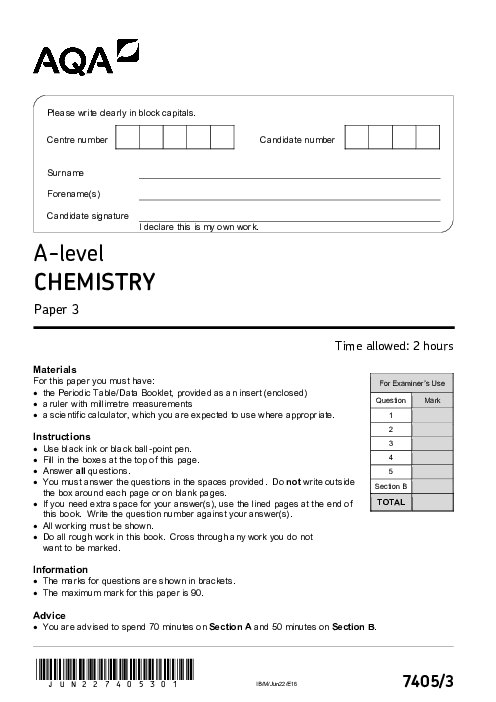Chemistry 7405/3 June 2022
omer uner
The exam integrates advanced chemistry concepts, covering thermodynamics, reaction mechanisms, spectroscopy, and catalysis. Topics include enthalpy of solution, lattice dissociation, Gibbs free energy calculations, and entropy changes. Analytical sections examine mechanisms for stereoisomers, enantiomers, and nucleophilic substitution reactions. Catalysis questions address heterogeneous and autocatalytic reactions with examples like ethanedioate oxidation and peroxodisulfate reactions. Organic synthesis emphasizes functional group reactivity, polymerization, and isomer identification. Practical applications include reaction rate monitoring, halogenoalkane hydrolysis, and titration methodologies. Emphasis is placed on theoretical analysis, problem-solving, and applying chemical principles to real-world scenarios.
See More Paper 3 a year ago
Chemistry (7405) Subject directory
All resources in one place
Related Past Papers
Related Tutorials
Crash report
